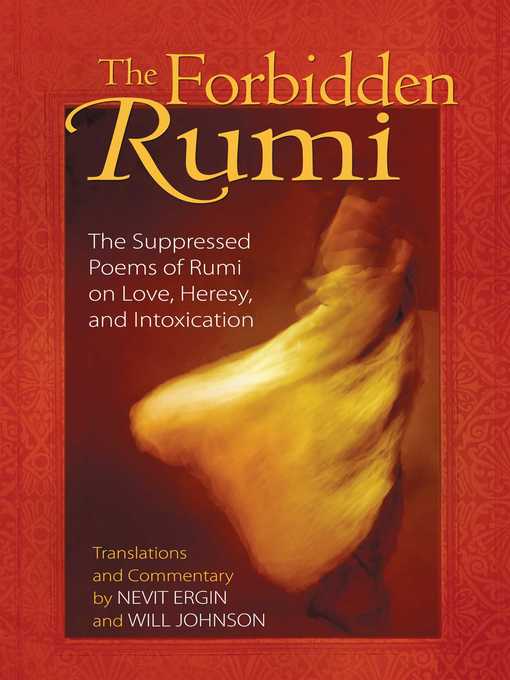- Food & Cooking
- News & Politics
- Celebrity
- Travel & Outdoor
- Business & Finance
- Fashion
- Art & Architecture
- Culture & Literature
- Family & Parenting
- Hunting & Fishing
- Tech & Gaming
- Health & Fitness
- Crafts & Hobbies
- See all
• Presents Rumi's most heretical and free-form poems
• Includes introductions and commentary that provide both 13th-century context and modern interpretation
After his overwhelming and life-altering encounters with Shams of Tabriz, Rumi, the great thirteenth-century mystic, poet, and originator of the whirling dervishes, let go of many of the precepts of formal religion, insisting that only a complete personal dissolving into the larger energies of God could provide the satisfaction that the heart so desperately seeks. He began to speak spontaneously in the language of poetry, and his followers compiled his 44,000 verses into 23 volumes, collectively called the Divan.
When Nevit Ergin decided to translate the Divan of Rumi into English, he enlisted the help of the Turkish government, which was happy to participate. The first 22 volumes were published without difficulty, but the government withdrew its support and refused to participate in the publication of the final volume due to its openly heretical nature. Now, in The Forbidden Rumi, Will Johnson and Nevit Ergin present for the first time in English Rumi's poems from this forbidden volume. The collection is grouped into three sections: songs to Shams and God, songs of heresy, and songs of advice and admonition. In them Rumi explains that in order to transform our consciousness, we must let go of ingrained habits and embrace new ones. In short, we must become heretics.

